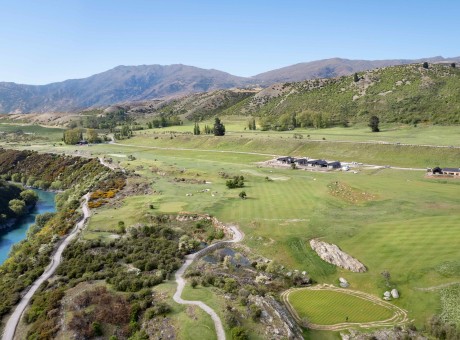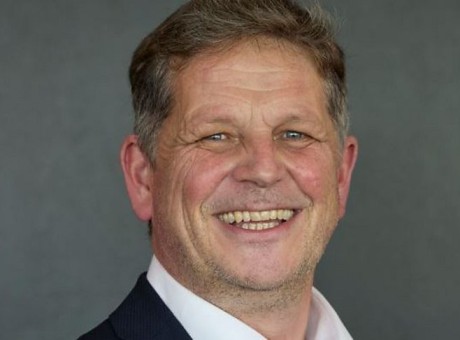How one bus is breaking barriers to women's health in the south
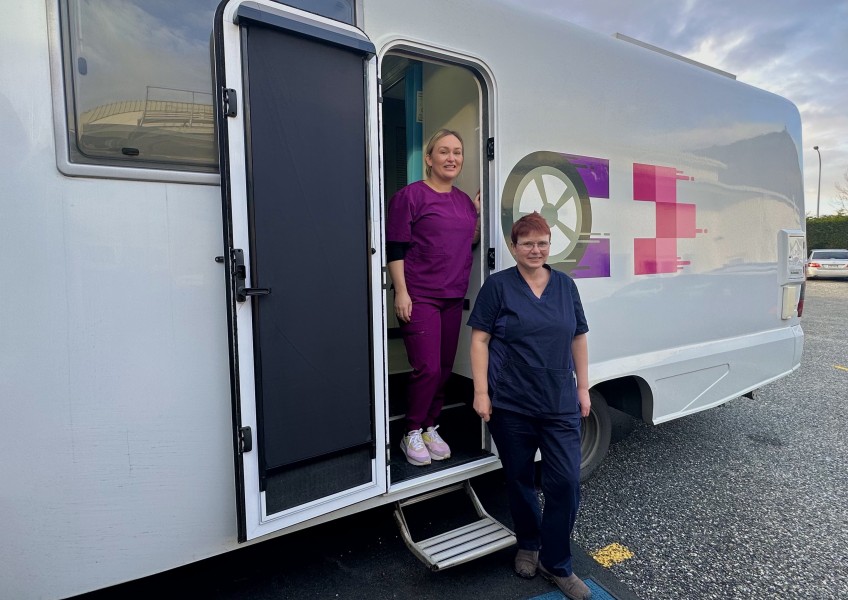
In Queenstown yesterday to conduct seven colposcopies were Woman’s Health Bus co-directors Helen Paterson and Alice van Zijl, who routinely park up outside the hospital every month.
The seven women seen were all saved a drive down to Invercargill - and the added costs incurred with it.
The Woman’s Health Bus, or Te Waka Wāhine Hauora, started as a non-profit four years ago, after gynaecologist Dr Paterson saw Otago and Southland women becoming victims of their own geography, with distance becoming a barrier to accessing healthcare.
An early source of inspiration for the idea, Dr Paterson says there was a 2016 study conducted on the cost to a person for a hospital visit - for those living in Dunedin it cost $80 to access their nearest hospital, but for Central Otago residents the figure jumped to more than $700.
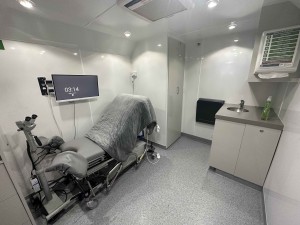
One of the rooms inside the health bus, which Dr Paterson drives herself.
“(For Dunedin) you have to get an hour off work, you've got to drive and get parking...but if you live in Central Otago, let's say you have to travel, sometimes you have to stay overnight, you have to pay for childcare and that's all added up.”
Ms van Zijl is a trained nurse, who also ran her own primary care practice in Cromwell alongside her husband.
She says working in primary health care and caring for female patients, you “definitely see a lot of women that are frustrated”, but the bus helps ease that frustration.
“Over the years, they’ve (women) been told that their heavy periods were normal, and ‘that's just part of being a woman’ and things like that.
“I don't necessarily think that that's done with malice, but there's just not enough time. I think primary health has just got so complex."
The bus has provided a win for Central Otago when it comes to colposcopy services.
This is generally the follow-up to an abnormal smear test and 18 months ago the procedure was not available in Central Otago.
Now, the Woman’s Health Bus is contracted by Te Whatu Ora/Health NZ to take it on.
When they started doing the contract, the option was so popular for local women they were choosing to hold off on trips to Dunedin or Invercargill in favour of catching the bus next time it was parked up in their neighbourhood.
The demand was recognised by Te Whatu Ora, who made the call two months ago to also send staff up to Dunstan Hospital in Clyde regularly to attend to Central Otago women needing a colposcopy.
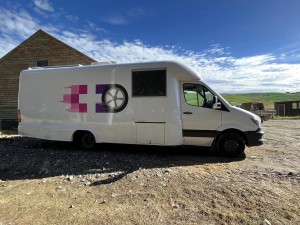
The Health Bus outside a shearing shed, at the 'Shear for a Cause' 24-hour Shearathon (Source: Facebook).
With some of its time freed up the Woman’s Health bus is now looking for more funding to take on another project, to meet another women's health need.
On their wish list, a Point of Care diagnostic machine, which allows results of a swab to be delivered within an hour.
There’s still plenty of work to do, with 25,000 women unscreened in the Southern region, Dr Paterson says.
At the end of last month, they borrowed a Point of Care machine and parked up at the South Island Dairy Event, allowing them provide a faster diagnostic service to women in attendance.
They were able to swab women, take down their phone numbers, and call them back within an hour with their results.
Through ventures like this, the Woman’s Health Bus team also became aware they are addressing another barrier they didn’t realise existed: there’s some people who don't like hospitals.
“That is a barrier we didn’t think about, because for us hospitals are an easy place to go because we’re used to it, but a lot people don’t feel like they’re good, happy places,” Dr Paterson says.
"There’s a lot of people who come through the door and say, 'We're really pleased that we’re not in the hospital’…some people, they've had a bad event in the hospital.”
The bus covers “basically anything considered sexual and reproductive healthcare”, including colposcopy, contraception, menopause symptoms and abnormal bleeding, and the aim, is not to rush through the appointments, but provide holistic care.
They see anywhere from seven to ten patients a shift, with half of these being self-referrals and the other coming from hospital or primary health care referrals.
The bus is about “breaking down the inequity of rurality” so people can get the healthcare they need, Dr Paterson says.
The bus is even designed to park up at a shearing shed, which has been done.
The running of the bus is sustainable, Dr Paterson says, however, it did use the revenue of a property sale to get it off the ground, which Dr Paterson and her husband lent to the non-profit as an interest free loan.
“My husband said, you keep talking about a bus. Why don't you just go and do it?”, Dr Paterson says.
Their hope is for the bus model to be replicated in other parts of New Zealand, where distance and cost is a barrier for other populations.
“We have a country that is very rural, and southern is very rural, so we have a particular problem with it. But it applies to Northland, it applies to East Cape.”
Main image: Alice van Zijl (left) and Helen Paterson (right), the co-directors of the Woman's Health Bus, Te Waka Wāhine Hauora, outside the Lakes District Hospital today.





